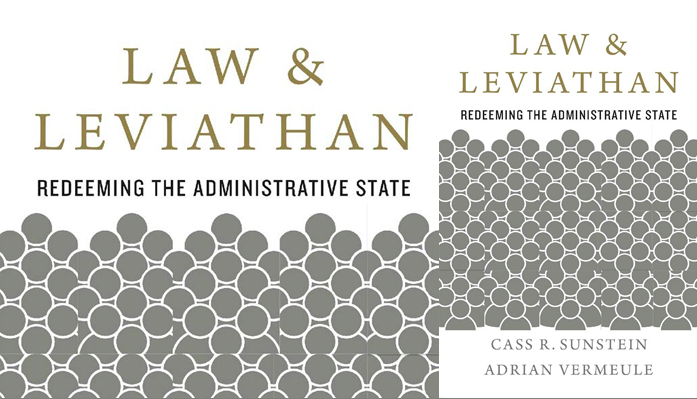Law School Author Series: Seminar 5 with Cass Sunstein
Law School Author Seminar Series - Conversations with Donna Lyons . Seminar 5 with Professor Cass Sunstein.
School of Law Author Series 2020/21 and TriCON hosts:
Professor Cass Sunstein speaking at Tri.CON (Trinity Centre for Constitutional Governance) at the School of Law, Trinity College Dublin - on his new book, ‘Law on Leviathan’, co-authored with Professor Adrian Vermeule.
Date and time: 3pm - 4pm Irish Standard Time, Friday, 2 October 2020
Cass Sunstein, Robert Walmsley University Professor at Harvard, will be discussing this important new book with Donna Lyons at Tri.CON (Trinity Centre for Constitutional Governance) in the Trinity College Dublin School of Law on Friday, on 2 October 2020.
This event will take place at 3pm Irish Standard Time (which is 10am EST). The event is free and open to all. It will be possible for attendees to join the webinar directly via the link on Zoom and the event will be simultaneously live-streamed on the Law School Facebook page. There will be an opportunity for attendees to ask questions of Professor Sunstein during the session.
About Law on Leviathan:
From two legal luminaries, a highly original framework for restoring confidence in a government bureaucracy increasingly derided as “the deep state.” Is the modern administrative state illegitimate? Unconstitutional? Unaccountable? Dangerous? Intolerable? American public law has long been riven by a persistent, serious conflict, a kind of low-grade cold war, over these questions.
Cass Sunstein and Adrian Vermeule argue that the administrative state can be redeemed, as long as public officials are constrained by what they call the morality of administrative law. Law and Leviathan elaborates a number of principles that underlie this moral regime. Officials who respect that morality never fail to make rules in the first place. They ensure transparency, so that people are made aware of the rules with which they must comply. They never abuse retroactivity, so that people can rely on current rules, which are not under constant threat of change. They make rules that are understandable and avoid issuing rules that contradict each other.
These principles may seem simple, but they have a great deal of power. Already, without explicit enunciation, they limit the activities of administrative agencies every day. But we can aspire for better. In more robust form, these principles could address many of the concerns that have critics of the administrative state mourning what they see as the demise of the rule of law. The bureaucratic Leviathan may be an inescapable reality of complex modern democracies, but Sunstein and Vermeule show how we can at last make peace between those who accept its necessity and those who yearn for its downfall.


